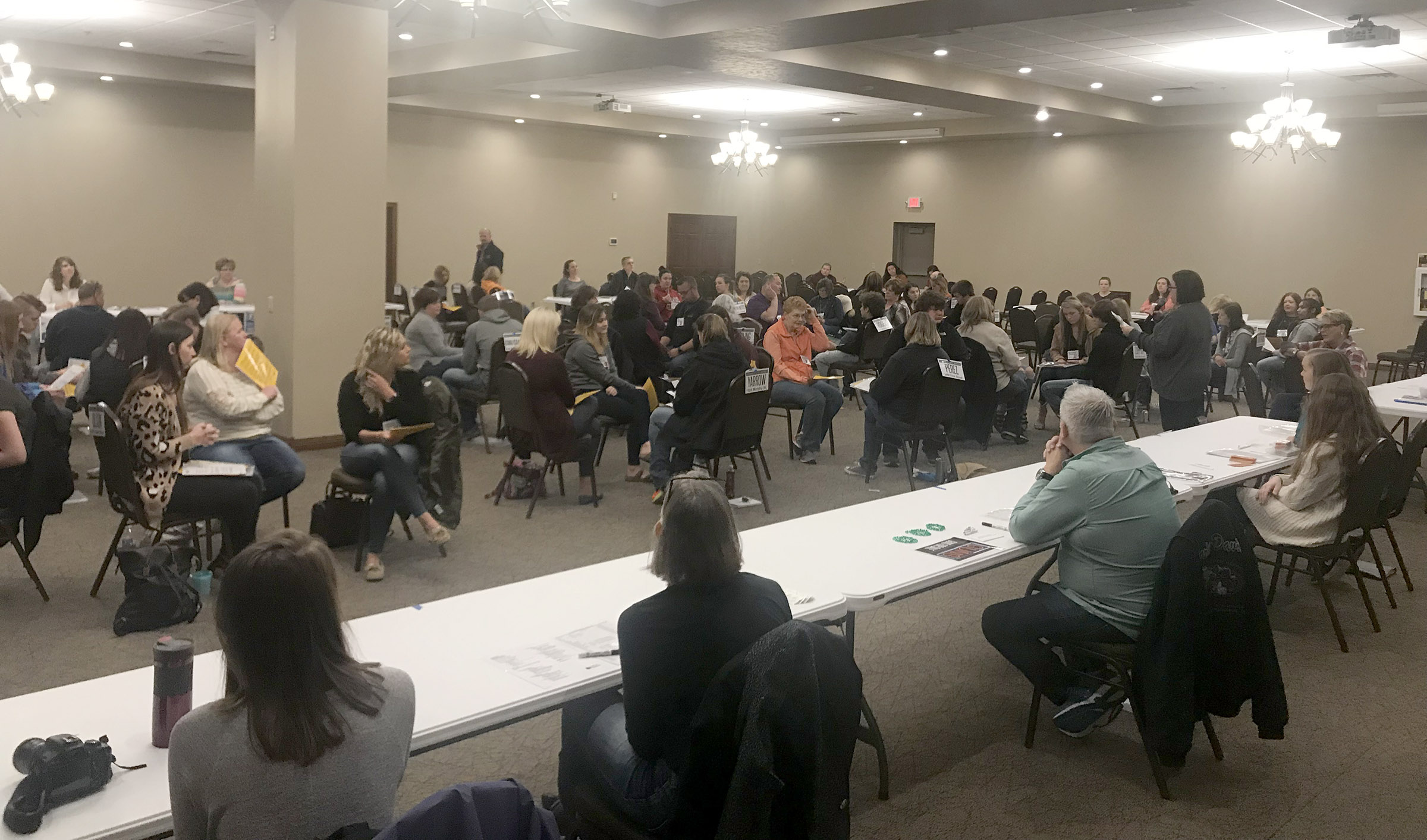 ,
, 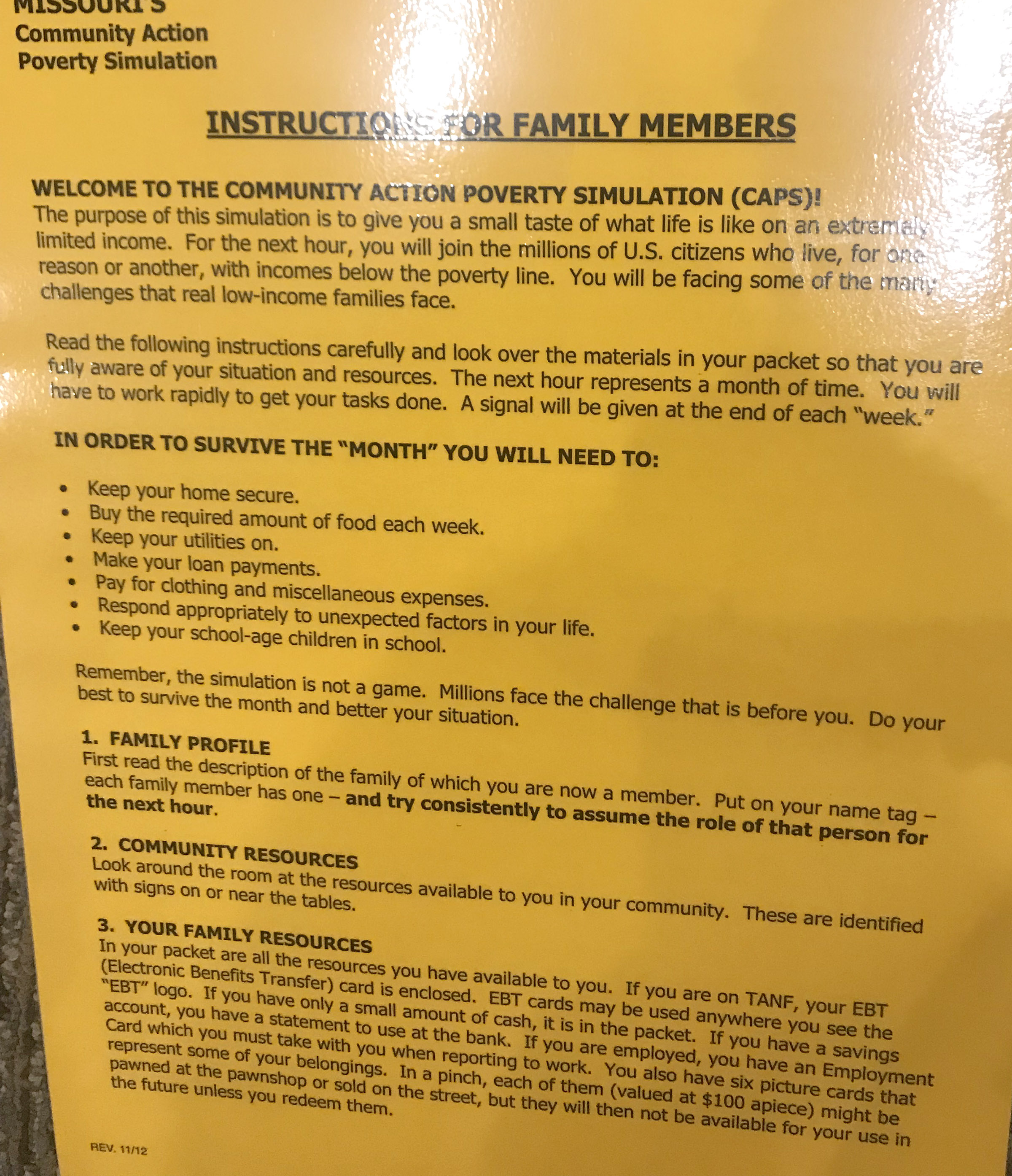 ,
, 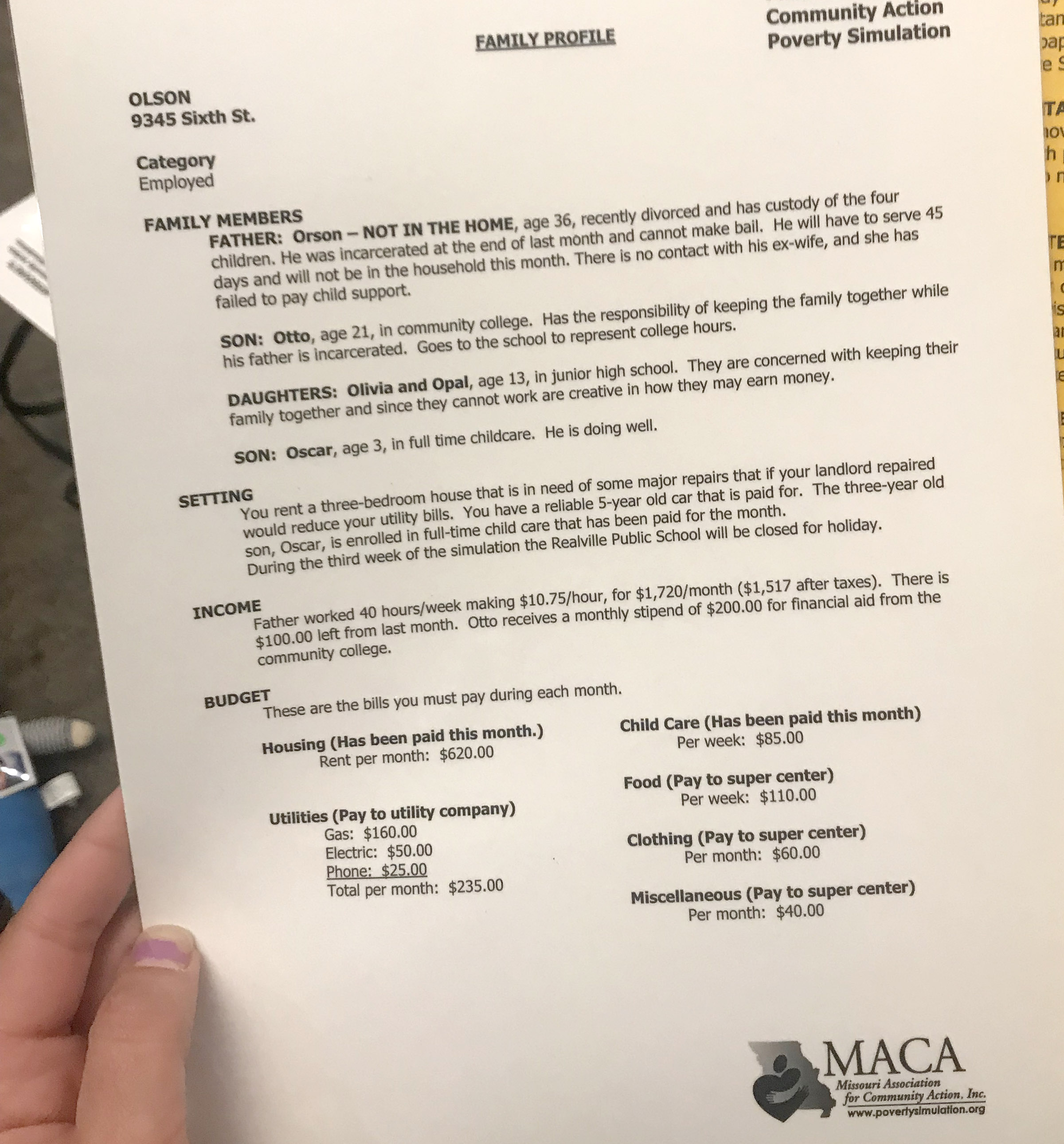 ,
, 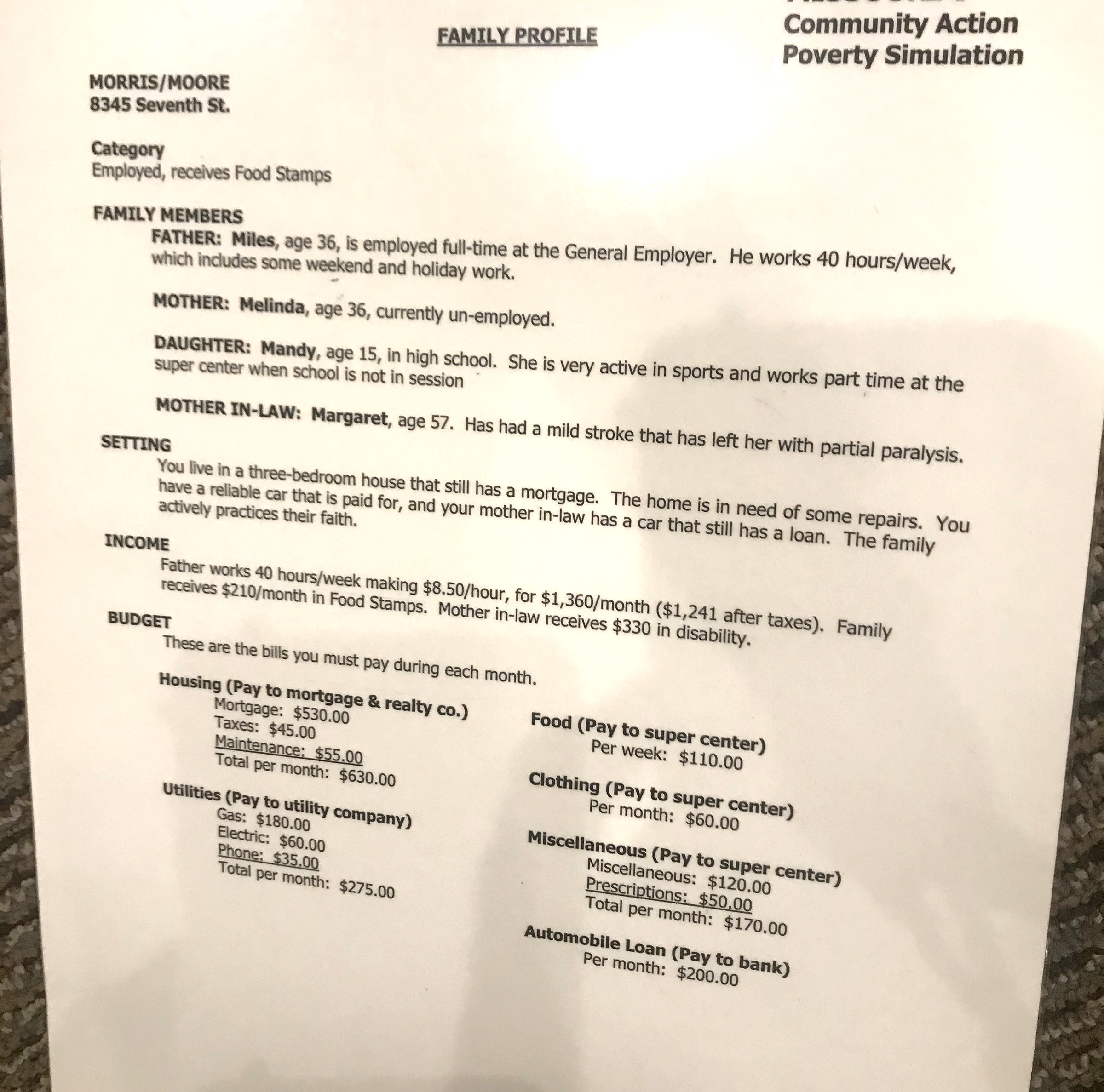 ,
, 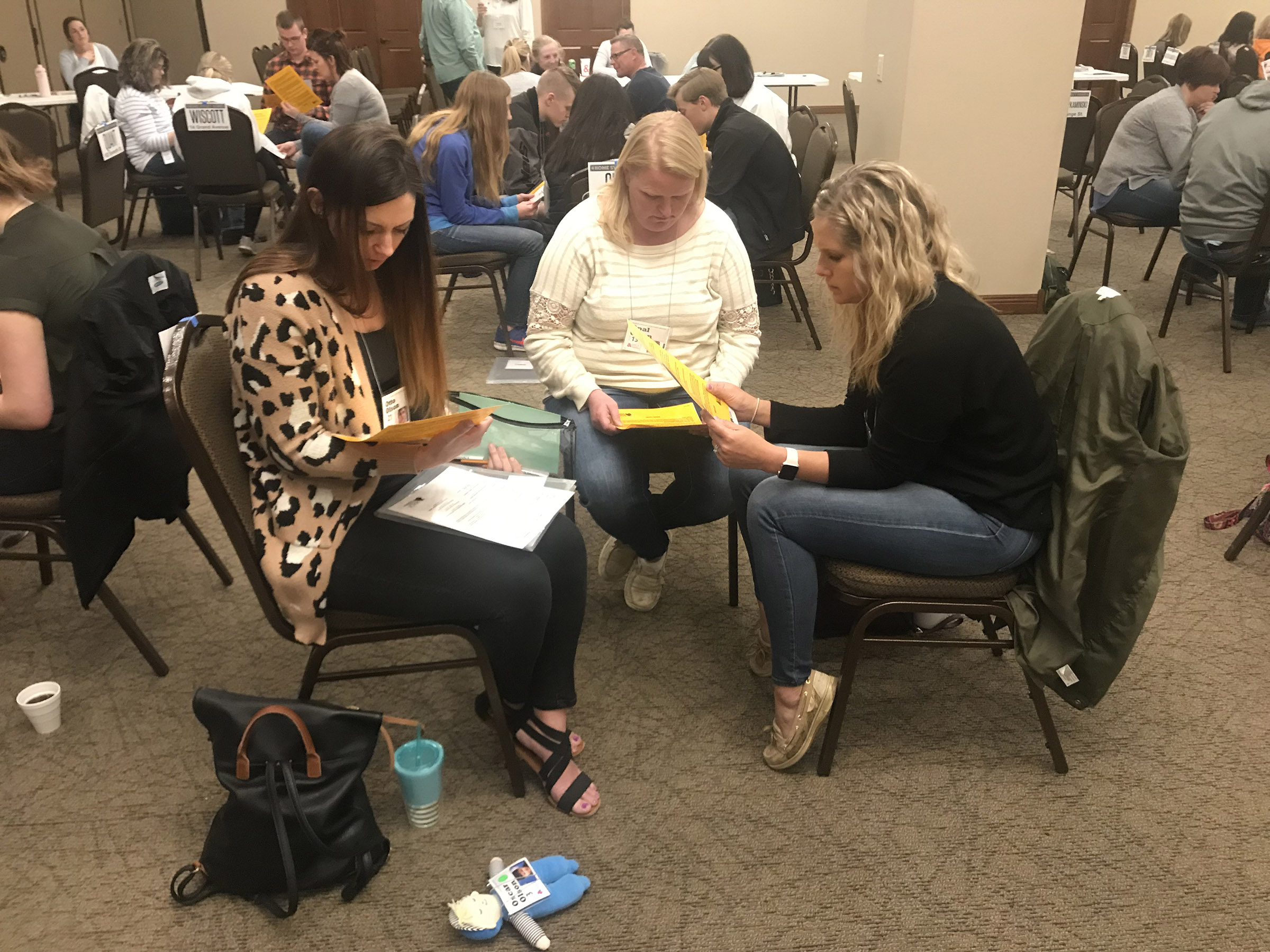 ,
, 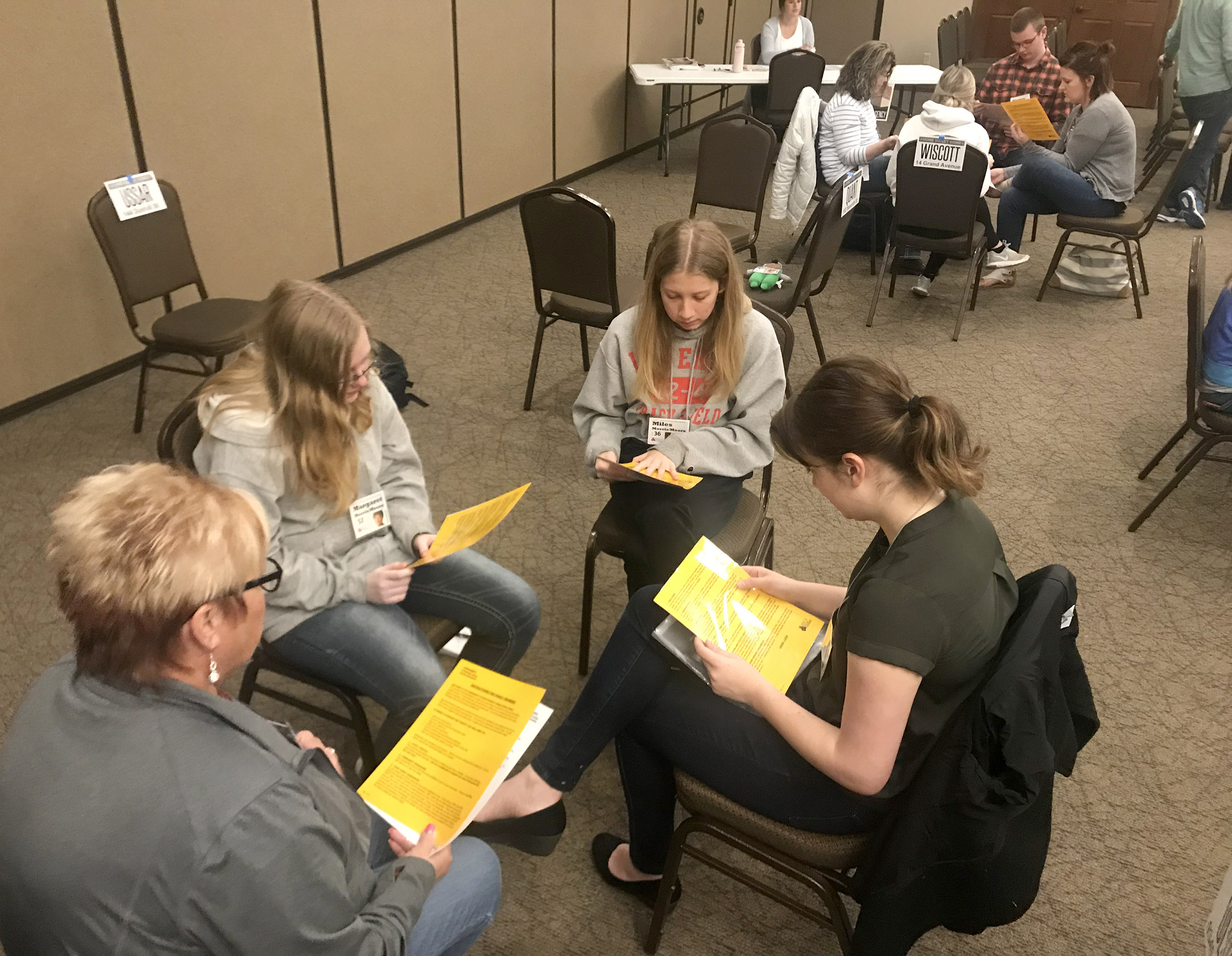
Nearly 90 people received name cards Tuesday morning when they came through the doors of Grand Prairie Events in Luverne.
The cards carried names of real life families living in poverty, and local participants spent an hour walking in their shoes during a poverty simulation hosted by #Luv1LuvAll.
It was the second one in Luverne — the first one was a year ago in May.
“Welcome to Realville,” said Debi Brandt of United Community Action Partnership in Willmar.
Brandt described Realville as a great place to live, but some residents live in poverty and struggle to meet basic needs.
Her organization has staged poverty simulations around the state to increase awareness of poverty and to inspire action.
The group was invited by #Luv1LuvAll, which has been meeting in Luverne for nearly two years with support from the Blandin Foundation.
Tuesday’s poverty simulation involved students from Luverne, Adrian, Hills-Beaver Creek, Edgerton and Southwest Christian.
The Realville families clustered on chairs that represented their homes scattered around the room and they opened packets that represented their living conditions.
Most had jobs with wages that didn’t cover expenses, and most struggled to maintain stable homes amid challenging life circumstances.
Several minutes in Realville represented a day, during which time the families were required to meet obligations like work, school, doctor appointments and others. A loud bell signified the beginning and end of each day.
Families had limited transportation options, which affected their ability to meet obligations like keeping their homes safe, feeding their families and keeping up with utility payments and loans — in addition to paying for miscellaneous expenses.
Meanwhile they were randomly handed “luck of the draw” cards that represented unplanned crises — like a medical need or loss of a job.
The participants were encouraged to play the roles of the people they were representing — to feel the frustration and imagine the desperation of encountering one crisis after another, all the while trying to do what’s right for their families.
“The idea is to offer a glimpse at what it’s like to struggle to meet basic needs,” Brandt said, reminding the group that the exercise shouldn’t be treated like a game; the scenarios are based on real people and real situations.
“It’s not designed to demoralize, but rather to create awareness and hopefully motivate a call to action.”
She and local organizers and volunteers with #Luv1LuvAll said they also hoped the awareness would lead to better community understanding, compassion and — at the very least — kindness.


